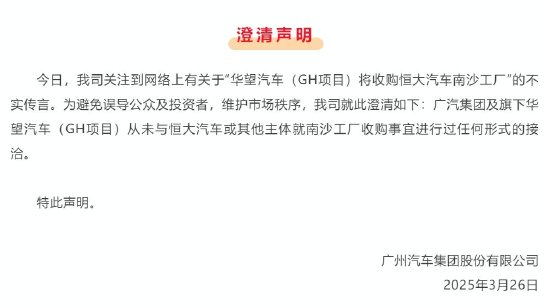内容介绍:
http://upload.mnw.cn/2022/0106/1641437906564.png
在化学分析领域,每一个细微的误差都可能影响最终结果的准确性。特别是在需要高精度测量的场景下,比如环境监测、药品研发或食品安全检测,任何一点偏差都可能导致严重的后果。作为一名多年从事化学分析工作的专业人
近期以来玻璃现货市场价格调整的幅度和频率没有明显的变化,依旧以增加出库和回笼资金为主。从区域看,华南和西南等地区价格调整之后,出库情况有了一定幅度的改善,部分厂家库存削减。华中地区价格继续走弱,生产企
在我多年的科研与检测工作中,经常需要面对各种元素的分析与测定。其中,镉元素作为一种常见的重金属元素,其溶液标准物质在环境监测、食品安全、材料科学等领域扮演着至关重要的角色。每一次准确测定镉元素的含量,
在球鞋设计领域,Nike始终以其创新能力影响潮流风尚。去年,Nike对旗下经典之作Air Max Plus进行了不小的改造,推出了集力量与美感于一身的“装甲版”Air Max Plus Drift,再
临近月末,玻璃现货市场总体走势一般,生产企业继续以增加出库和回笼资金为主,市场价格变化不大。当前北方地区农忙基本结束,终端市场需求尚可;南方地区雨季还在继续,对终端市场需求有一定的影响。同时雨季对部分
尊敬的客户朋友们:根据2024国家法定假期规定,并结合我公司实际情况,现对国庆节假期做如下安排:10月1日——10月7日,共7天, 10月12日星期六)正常上班。温馨提示:假期
3月20日,记者从长寿经开区获悉,重庆全部复合材料股份有限公司长寿新材料研发生产基地日前在长寿经开区点火投产,成为国内较好大的特种玻纤生产研发基地。据了解,全部复合新材料研发生产基地共规划建设7条特种
中国消费者报上海讯记者孟刚)近日,上海市网信办、市市场监管局会同徐汇网信办、黄浦网信办,依法约谈3家企业,要求星巴克、Shake Shack、天泰餐厅针对过度收集个人信息行为进行全面整改,切实履行个人
在波诡云谲的家电市场中,美的、海尔、格力作为行业三大品牌,始终站在市场发展的前沿,带领着行业趋势。然而,2024年上半年,这三大品牌各自经历了不同的市场挑战与机遇,呈现出截然不同的发展态势。美的集团凭
中国消费者报天津讯(记者 万晓东)近期,天津市市场监管委疫情防控暗访督查组对辖区内部分商场、超市、菜市场落实《新型冠状病毒肺炎流行期间超市卫生防护指南》情况进行了明查暗访,并将发现的一批典型问题进行通
孕前三个月的健康饮食指南怀孕对于每个女性来说都是一段充满期待和喜悦的旅程。在怀孕之前的三个月,准备身体是至关重要的。一个健康的饮食习惯不仅可以帮助您保持良好的身体状态,还可以为宝宝的健康奠定坚实的基础
http://www.mtksj.com/uploads/allimg/220516/1-2205160T41W38.jpg|http://www.mtksj.com/uploads/allimg/2
好孩子婴童店加盟:加盟优势好孩子婴童店是一家以婴童用品为主营业务的连锁企业,拥有十分广阔的市场前景和巨大的商业价值。作为一家加盟商,加盟好孩子婴童店可以得到以下优势:第一,由于好孩子婴童店在市场上具有
从区域看,华东地区部分厂家报价有所上涨,以跟进华南等地区的厂家报价,但实际成交价格变化不大,以涨促销为主。近期产能集中增加,对现货成交也有一定的影响,尤其是华南和华中等地区。各区域走势如下:1华东地区
在科研与检测的广阔天地里,每一次实验的精准性都至关重要。我曾无数次在实验室中,面对着各式各样的化学试剂与仪器,深刻体会到每一个细节对实验结果的影响。氧化锌滴定溶液作为常用的标准物质,其准确性和稳定性直
盘面情况:FG2005合约增仓缩量,期价继续下跌。当日收盘1343,较上一交易日-2.04%;成交量145682手,持仓量151892手,+17361;基差+103。消息:1、据隆众资讯,截止3月12
【中国玻璃网】记者从日前出台的《厦门市2020年淘汰落后产能工作方案》(以下简称《方案》)中获悉,今年我市以钢铁、煤炭、煤电、水泥、电解铝、平板玻璃等行业为要点,促使一批能耗、环保、安全、质量、技术达
狗头汤备孕法:提高受孕几率的自然方法在当今社会,许多夫妇都希望能尽快怀上自己的宝宝。有些人可能面临着困扰,尝试了许多方法却依然未能成功。如果你也是其中之一,不妨试试传统中医的狗头汤备孕法,这是一种自然






